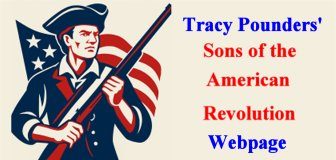My Patriot Ancestor: “Thomas McSpadden at Wetzell’s Mill” – An eyewitness account dictated to Tracy Pounders
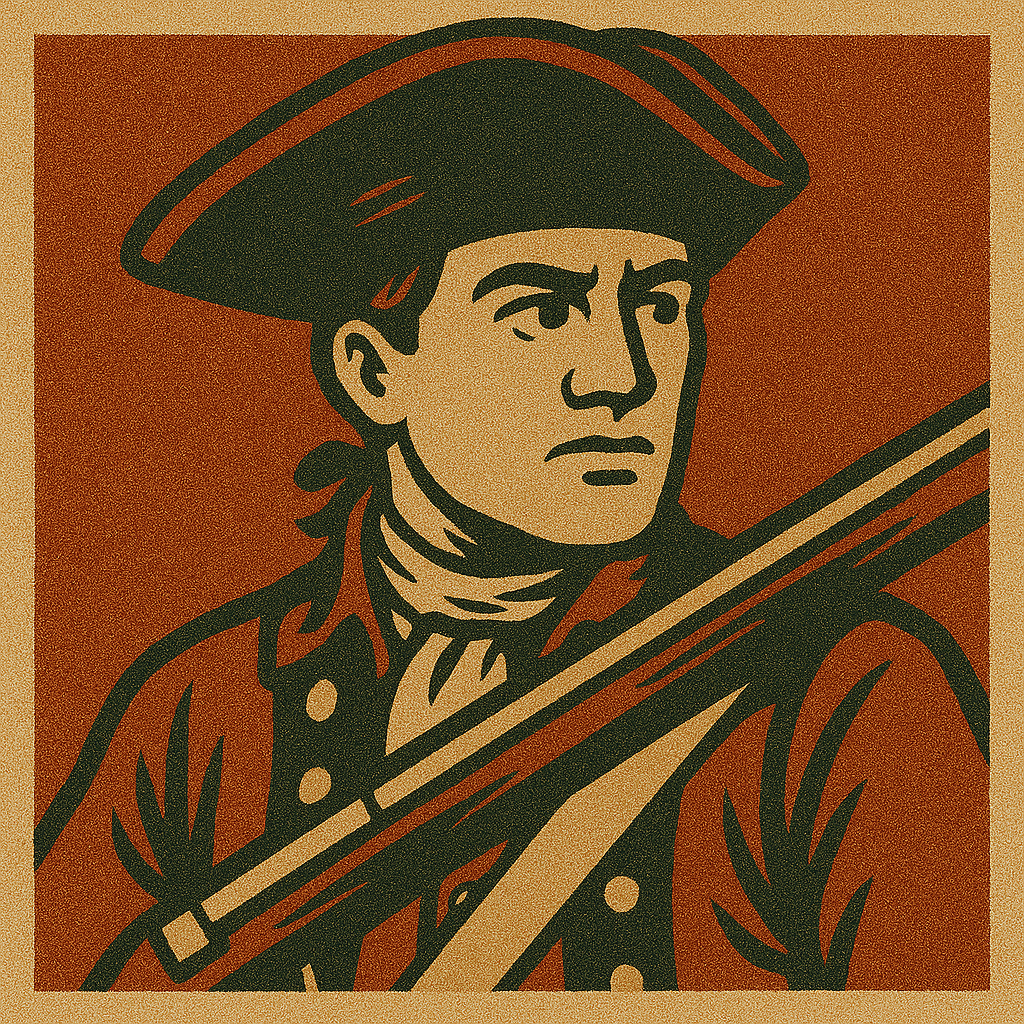
“The rain had turned the roads to mud by the time I reached the banks of Reedy Fork Creek. It was March 6, 1781, and General Nathanael Greene had sent Colonel Otho Williams and my militia company from Washington County, Virginia northward to slow down Cornwallis’s advancing British army.
“Wetzell’s Mill was no grand fortress, just a humble crossing. An old wooden bridge over a stubborn creek. But our commander is telling us that holding it is important, that it is worth our lives to delay the British as long as we can. ‘For every day the redcoats are delayed we get another day closer to gaining our freedom’, they tell us. Of course, the arrogant British think nothing can stop or slow them, certainly not a bunch of farmers. Hah! We know a tempest is coming our way, but we also know that we will prove them wrong in combat!
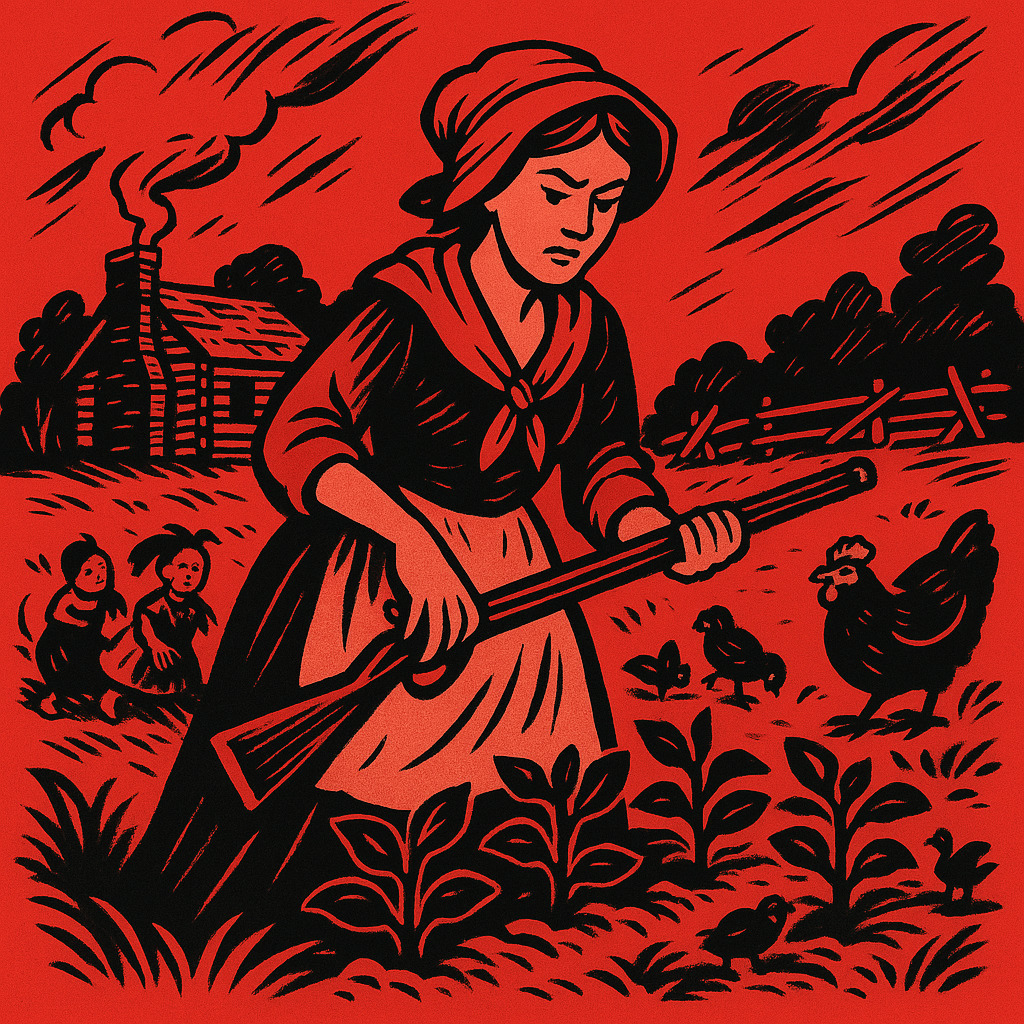
“Waiting. Waiting. Our commander tells us that the war will be coming to us soon, but for a while nothing happens. During this respite we have a little time, maybe too much time, to pray and reflect. I look at myself. I don’t have much meat on me but when I’m home I have no problem cutting down a tree or leading a plow team. Why am I here instead of on my farm? I should be home working – there’s so much to do! I left my sweet wife, Mary Amanda, to tend our farm and our kids by herself. What sort of man would do that? She says I serve in the militia because I’m stubborn, whatever that means, but I’m no more stubborn than any other farmer in Washington County. She also kids me that I play soldier each year so I’ll be away when the babies are born. Maybe she’s right – I’ve done my duty four other times in the past five years and each time a new baby greets me when I get home. My sweet Mary Amanda – she was with child when I left. Has the baby been born? Is my sweet wife still alive? I miss her so!
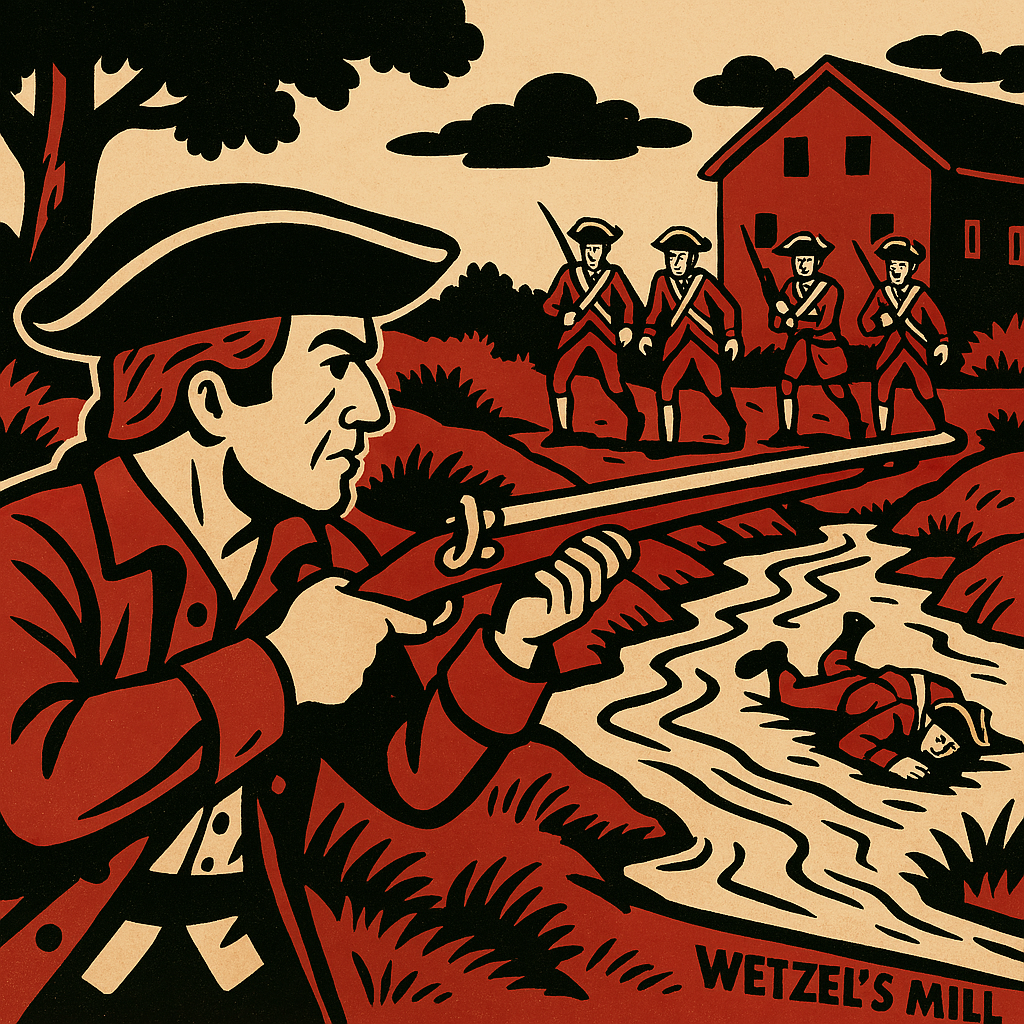
“Stop! – no more time for idle thoughts or weakness – Listen! Drums thud in the distance. Death is coming. The enemy’s light infantry is marching towards us fast. Boots churn the wet ground. I crouch behind a tree just east of the crossing and stubbornly resolve to face whatever is thrown at me – no matter what. Musket fire! The air quickly becomes thick with tension and black powder. But I stand firm as ordered.
“The enemy surges toward the bridge. I take my first shot, the musket bucking against my shoulder. A redcoat falls — did I kill him? — and then the fight begins in earnest. Militia and Continentals unleash a blistering fire across the swollen creek, forcing the enemy to fight for every inch of ground.
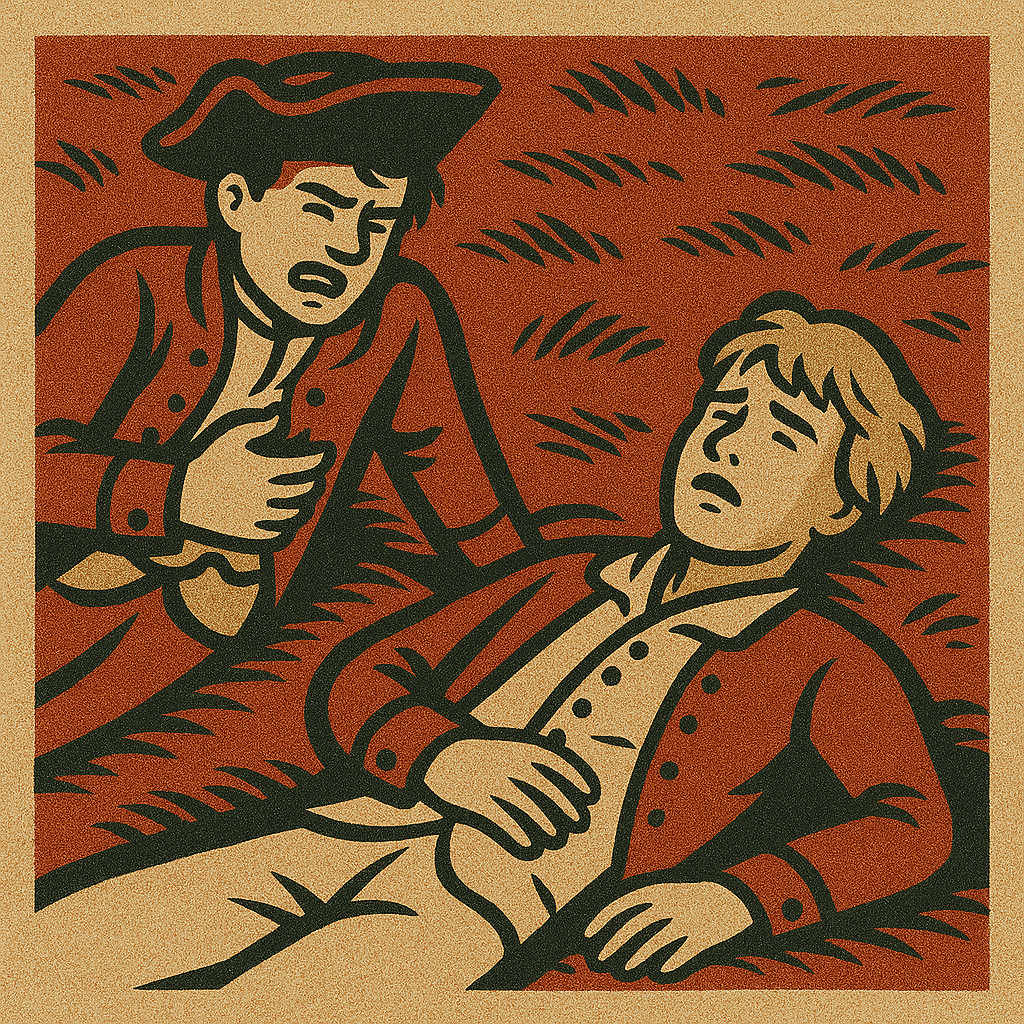
“I quickly find myself in the thick of it — reloading, firing, retreating by inches as ordered. Repeat and repeat and repeat. Maybe an hour in I see two boys I’d shared breakfast with that morning – they’re shot pretty bad but can still move – I provide cover the best I can. I smile at one of the boys, he winks and nods back. One of my comrades, a rifleman from Augusta named Thomas Rodgers, sees me and gives cover while I help those two injured boys get to their feet and move away. With the boys moving back, me and Thomas held our ground with a prayer and two rounds each before we move back again as ordered. We do this over and over and over again. A few hours later we make our final retreat as ordered and safely rejoin what’s left of our militia company. I wish I knew if those two boys survived the day, but I don’t.
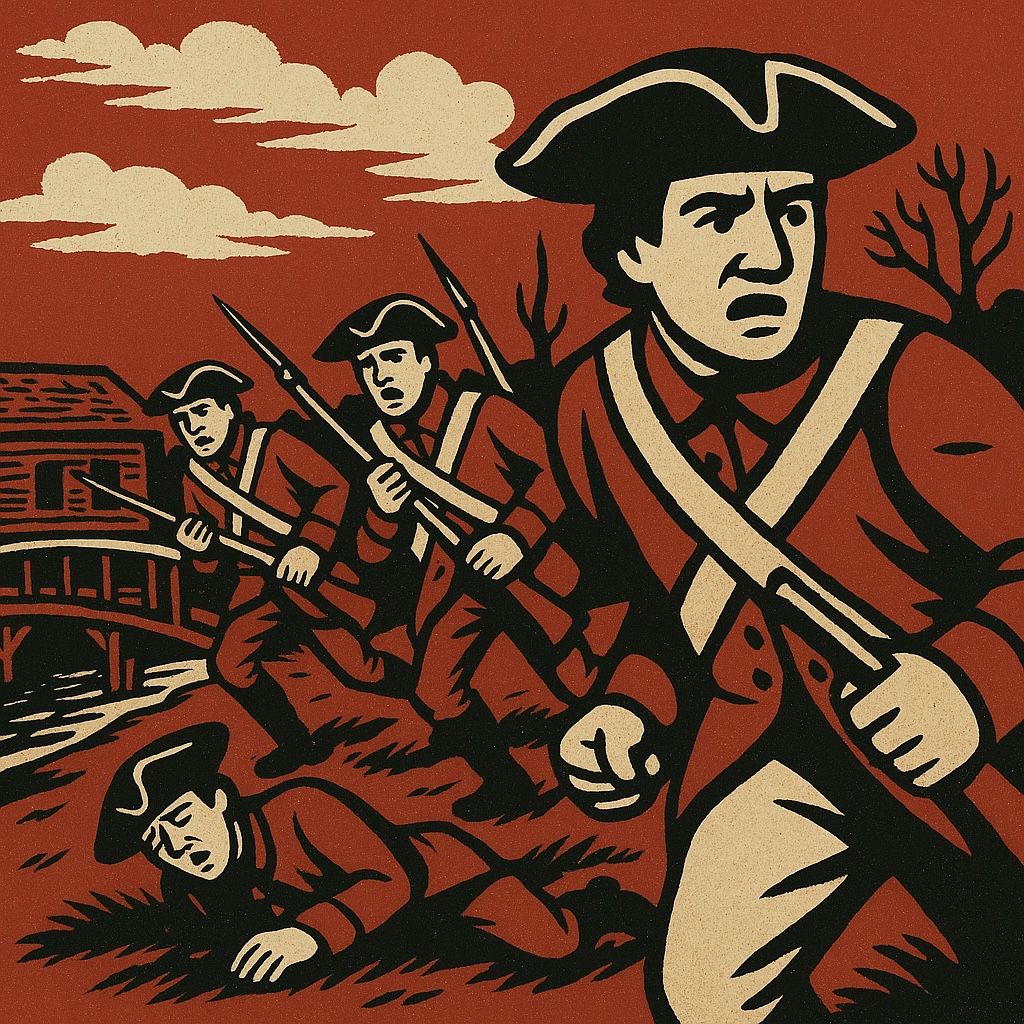
“We had no hope of stopping the Redcoats from taking the field that day, but we made them pay a hefty price for it! Later we found out that we’d bought Gen. Greene precious time so he could regroup his army — our stubborn resolve and sacrifice bought our Good General a victory at Guilford Courthouse shortly afterward.
“I tell you this because what me and my comrades did that day didn’t make the news – it was just a skirmish – for some time nobody talked about it at all. There were no medals, no ribbons. But we know what we know. On that muddy morning at Wetzell’s Mill we stood firm, held the line, and proved that small battles—fought by lowly but stubborn farmers — can shape the course of a revolution.”
POSTSCRIPT
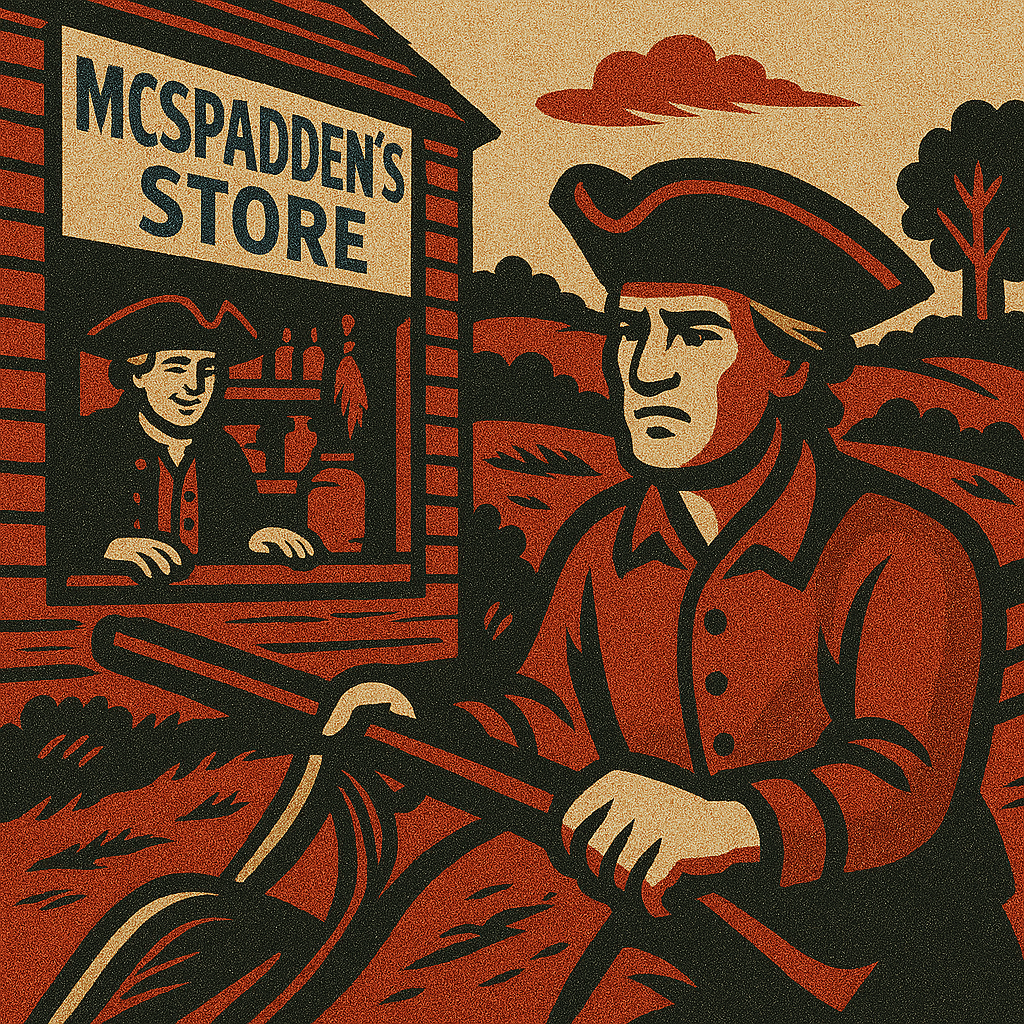
Thomas McSpadden survived the war. He returned to his home and Mary Amanda greeted him with a new son. Unfortunately we know very little about Mary Amanda except that she must’ve loved Thomas very much – they had 12 children together. Later Thomas got a land grant on the ‘Horseshoe Bend’ of the Cumberland River. Their homestead was located where the Opryland Theme Park in Nashville TN is today. For many decades that part of the Cumberland River was known as ‘McSpadden’s Bend’ and Thomas ran a store there. One of his regular customers was a young lawyer named Andrew Jackson who became a close friend of the family, especially to Thomas’ younger brother, Samuel “Gunpowder” McSpadden – how Samuel got that nickname is a great story, but unfortunately that’s another tale for another day.
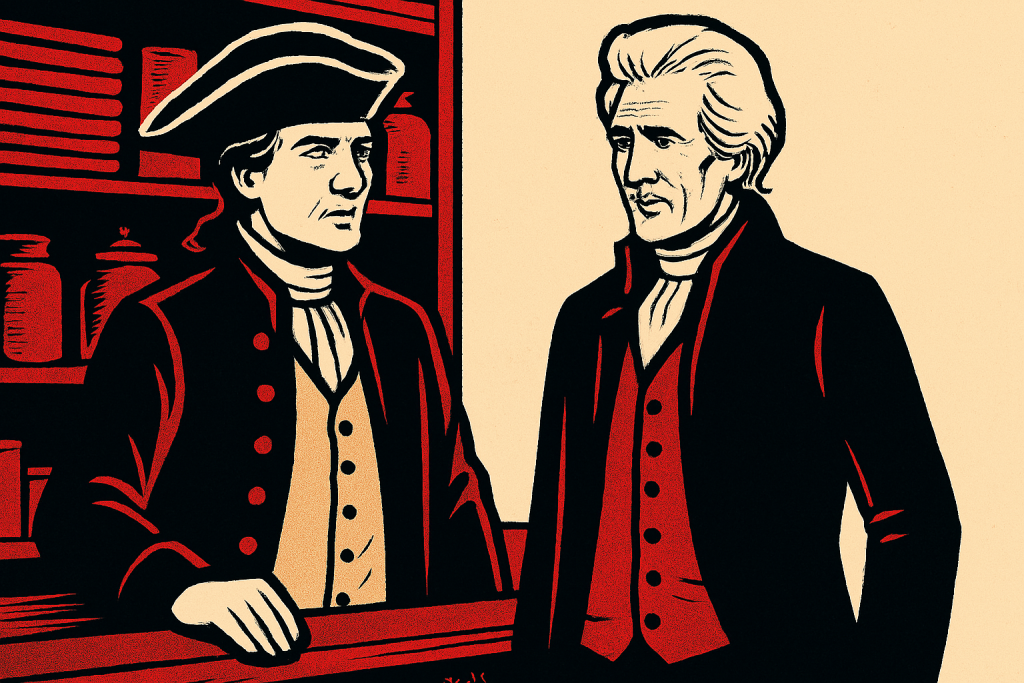
PHOTO CREDIT: photos generated using ChatGPT.
